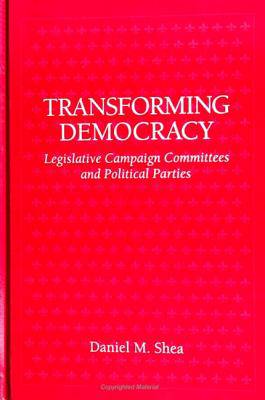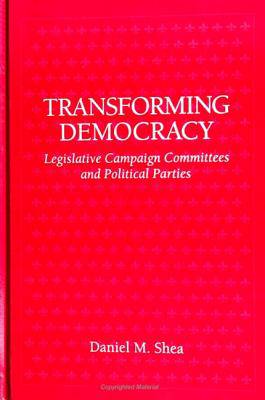
- Retrait gratuit dans votre magasin Club
- 7.000.000 titres dans notre catalogue
- Payer en toute sécurité
- Toujours un magasin près de chez vous
- Retrait gratuit dans votre magasin Club
- 7.000.000 titres dans notre catalogue
- Payer en toute sécurité
- Toujours un magasin près de chez vous
145,45 €
+ 290 points
Format
Description
This book examines the emergence of state-level legislative campaign committees (LCCs) and their relationship with traditional political party organizations. Now found in 40 states, LCCs provide extensive campaign services and are quickly becoming the dominant force in state politics. But where do these new organizations fit in the party rubric? Whereas most scholars suggest they are evidence of party evolution and growth, Shea disagrees, forcing a rethinking of precisely what we expect political parties to do. Are state LCCs part of, and do they act like, party organizations? To answer this question, Shea examines surveys of over 300 state and county party leaders from around the nation and numerous sources of aggregate data. Using a mix of empirical and anecdotal information, the author looks at formal linkages, project interdependence, goals and activities, and general perceptions of party leaders. He concludes that LCCs are best conceived as independent campaign consulting firms rather than "party organizations" and that these new units may be contributing to party atrophy rather than party resurgence.
Spécifications
Parties prenantes
- Auteur(s) :
- Editeur:
Contenu
- Nombre de pages :
- 254
- Langue:
- Anglais
- Collection :
Caractéristiques
- EAN:
- 9780791425510
- Date de parution :
- 10-08-95
- Format:
- Livre relié
- Format numérique:
- Genaaid
- Dimensions :
- 152 mm x 229 mm
- Poids :
- 508 g







